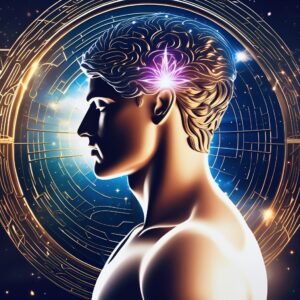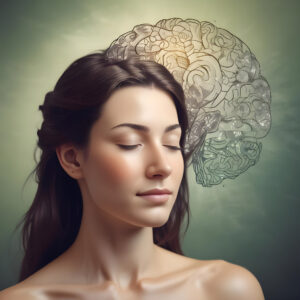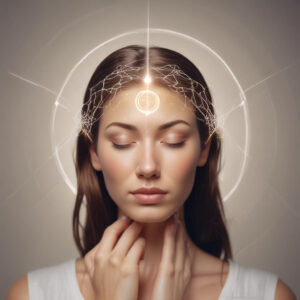Concussion Therapy
Concussion Therapy

Concussion Therapy in North York, Toronto. I invite you on a healing journey of concussion therapy, leveraging neuroplasticity right here in Toronto. The brain, with its remarkable capabilities, can actively self-repair under specific conditions. While many perceive the brain as a supercomputer responsible for body functions and sensory perception, dealing with brain trauma such as concussions often goes beyond mere diagnosis. It calls for a specialized skill set to ensure successful treatment and recovery.
Over the last decade, I have dedicated myself to healing brain trauma, including concussions and various other brain conditions such as memory-loss, ADHD, and learning disabilities. I have developed a unique approach I refer to as Energy Neuroplasticity. This therapy fosters a direct connection between the cortices and the inherent wisdom of the body. Guided by this connection, the brain’s consciousness embarks on its own repair journey.
Visualize
To visualize this process, imagine a traumatized brain akin to a segmented worm, each part isolated from the whole and operating independently. Typically, in post-concussive brains, I’ve noticed that consciousness often retreats into the protective shell of the reptilian brain. Unable to establish connections with other areas like the limbic and frontal sections, this consciousness remains stuck in a continuous trauma loop.
By employing a unique blend of energetic techniques, Applied Kinesiology, focused intent, and my special ability to connect with brains, I can restore a harmonious flow of cortical communication. This essentially triggers the brain’s innate ability to heal itself.
Welcome to our concussion clinic in Toronto, where we offer innovative concussion healing through Energy Neuroplasticity. Let’s tap into your brain’s extraordinary power for self-repair.
The Brain Can Self-Heal
Navigating the path of healing, especially with regards to concussion recovery, is a nuanced process that involves the interplay of multiple factors. While no healing modality can offer absolute guarantees, the brain’s incredible adaptability and neuroplasticity offer a beacon of hope. In my approach to concussion healing, I consider the entire spine as an extension of the brain, central to achieving optimal results.
The natural flow of energy up and down the spine is essential, promoting the unimpeded movement of cerebral spinal fluid. Ancient mystical traditions speak of an energy known as Kundalini, believed to traverse the spine, fostering healing, unity, and enlightening experiences. In contemporary times, we can understand this as a twofold phenomenon comprising the Cerebral spinal fluid and the Chi energy, the latter commonly harnessed by acupuncturists for rebalancing imbalances.
Combining
When this Chi energy intertwines with the flow of CS fluid, the brain too reaps positive effects, with notable reduction in swelling and irritation. In instances where spinal issues arise from injuries like a concussion, the harmonious flow of Kundalini energy aids in rebalancing and realigning the body.
Dealing with the fight or flight response of the Amygdala, which tends to become hyperactive post-trauma, I employ a series of specialized techniques to help release the trauma and reset this crucial brain part.
Contrary to modalities like Reiki or other energy healing practices where energy is imposed on an individual, this approach is rooted in neutrality. It facilitates the flow of pineal-activated energy into the missing gaps, further bolstering the process of concussion healing. Embark on your recovery journey with our specialized approach to concussion healing, fostering your brain’s inherent neuroplasticity for optimal results.
Energy Neuroplasticity Concussion Therapy
Pineal - The Master Gland
Deep within the brain lies the endocrine gland known as the pineal gland. This central organ, often referred to as the “third eye,” holds the key to unlocking remarkable strides in concussion healing. By accessing this organ, we can overlay its template onto damaged tissues, inducing a realignment of neurons and ultimately promoting brain healing.
Energy Neuroplasticity, a unique concussion therapy, stands apart from conventional techniques that attempt to impose healing conditions, such as hyperbaric oxygen chambers. This revolutionary approach connects directly with the brain, localizing treatment to the damaged areas.
Unlike other alternative healing modalities—BodyTalk, Medical Intuitive Readings, Reiki, Kinesiology, and Chi Kung—Energy Neuroplasticity follows a distinct philosophy. It neither adds nor subtracts energy. Contrary to many energy healing modalities that view energy as a flowing stream, Energy Neuroplasticity perceives it as a static resonance. Leveraging the pineal gland’s wealth of information, we can realign the electromagnetic resonance around the brain, prompting the brain to self-align.
Analogy
Think of this type of energy healing like holding a dog’s tail and watching the dog wag itself. The brain, like the dog, has inherent capabilities for self-healing under certain conditions. Energy Neuroplasticity has been effective in relieving symptoms of concussions, ADD, ADHD, anxiety, and learning disabilities. Often, three successive 60-minute treatments over two weeks can dramatically improve these conditions.
With each session, concussion therapy using Energy Neuroplasticity becomes increasingly easier for the client, as they can access the appropriate frequency and expand their awareness with greater ease. Before embarking on a session of Energy Neuroplasticity, please reach out to Orion via phone or email (found on the contact page). Below, you’ll find a link to purchase sessions for your path towards concussion healing.
Concussion Therapy - Summery of Energy Neuroplasticity
Energy Neuroplasticity for concussion clinic Toronto healing is an innovative approach gaining traction in Toronto. This therapy harnesses the brain’s natural ability to reorganize itself, aiding in the recovery from post-concussion symptoms and traumatic brain injuries (TBI). Orion Mott, a Toronto-based specialist in concussion therapy, offers a range of services that emphasize neuroplasticity, including neurotherapy, cognitive recovery exercises, and holistic brain health therapies.
Post-Concussion Treatment and Brain Injury Recovery
Concussions and TBIs can significantly impact cognitive functions, emotional well-being, and overall quality of life. Traditional approaches often focus on managing symptoms, but Energy Neuroplasticity seeks to address the root cause of the injury by enhancing the brain’s natural healing processes. Orion Mott provides a unique blend of therapies designed to stimulate neuroplasticity, thereby promoting recovery and restoration of brain function.
Concussion Therapy and Rehabilitation Techniques
Orion Mott’s concussion rehabilitation program is tailored to the individual’s specific needs, recognizing that each brain injury is unique. The program includes a variety of techniques, such as neurofeedback, energy healing, and meditation practices, all aimed at rebalancing the brain’s energy systems. This holistic approach not only addresses the physical symptoms of a concussion but also supports emotional and mental well-being, which are crucial for a full recovery.
Specialized Concussion Management and TBI Therapy
As a leading Toronto concussion therapy specialist, Orion Mott’s methods are grounded in the latest scientific understanding of neuroplasticity and brain health. The treatments offered are designed to facilitate the brain’s natural repair mechanisms, enhancing cognitive recovery and reducing the long-term effects of brain injuries. The focus on energy healing is particularly beneficial for patients who have not responded well to conventional treatments.
Neuroplasticity and Brain Wellness
The concept of neuroplasticity is central to understanding how the brain can recover from injury. By engaging in activities that promote neuroplasticity, such as specialized cognitive exercises and therapeutic interventions, patients can retrain their brains to function more effectively. This is particularly important in the context of post-trauma brain therapy, where the goal is to restore normal brain function and improve quality of life.
Comprehensive Care at Toronto Concussion Clinic
Orion Mott’s Toronto concussion clinic offers comprehensive care that includes not only direct therapeutic interventions but also education and support for patients and their families. Understanding the nature of brain injuries and the healing process is critical for effective recovery. The clinic provides resources and guidance on lifestyle changes, nutritional support, and mental health strategies that complement the core therapies.
Head Injury Healing and Cognitive Recovery
Healing from a head injury involves more than just physical recovery; it also requires addressing the cognitive and emotional challenges that often accompany such injuries. Orion Mott’s approach includes energy neuroplasticity techniques that support the brain’s natural healing processes, leading to improved cognitive function and emotional resilience. This holistic approach is particularly effective in promoting long-term brain wellness and preventing future issues.
Energy Neurotherapy
Energy Neuroplasticity offers a promising avenue for those seeking effective concussion treatment and brain injury recovery in Toronto. Orion Mott’s expertise in this field provides patients with a unique opportunity to harness the brain’s natural ability to heal itself. Through a combination of neurotherapy, cognitive recovery exercises, and holistic health practices, patients can achieve significant improvements in their overall well-being. For those struggling with the effects of a concussion or TBI, exploring the benefits of Energy Neuroplasticity may be a crucial step toward full recovery.



Healing Concussions
Healing Concussions: The Most Well Known Concussion Therapies Today
Concussions are mild traumatic brain injuries (mTBI) typically caused by a blow to the head, rapid deceleration, or other forms of physical impact. While they are classified as “mild,” the implications can be severe and long-lasting, affecting cognitive, physical, and emotional functioning. This article explores the latest therapies available for concussion treatment, from traditional methods to cutting-edge developments in medical science.
1. Rest and Activity Modification
Rest has long been the primary recommendation for concussion management. However, recent research emphasizes a balanced approach, combining rest with carefully monitored physical activity.
- Initial Rest Period: Following a concussion, patients are advised to undergo a brief period (24-48 hours) of physical and cognitive rest. This includes avoiding screens, reading, and strenuous activities. The aim is to prevent overstimulation and reduce stress on the brain.
- Gradual Reintroduction of Activities: Once symptoms start to subside, patients can gradually resume light physical activity under medical supervision. This may include walking or stretching, avoiding activities that involve head movement or high cardiovascular exertion.
2. Vestibular and Ocular Therapy
Concussions often disrupt the vestibular system, which is responsible for balance and spatial orientation, as well as ocular function, affecting eye movement and visual tracking. Vestibular and ocular therapies are designed to address these deficits.
- Vestibular Therapy: This therapy involves balance exercises, gaze stabilization, and habituation techniques to reduce dizziness and improve balance. A certified vestibular therapist guides the patient through exercises that gradually expose them to movements or environments that previously triggered symptoms.
- Ocular Therapy: Patients with visual disturbances like blurred vision, double vision, or difficulty tracking objects may benefit from ocular therapy. This includes eye exercises, such as tracking moving objects or focusing between distant and close objects, under the guidance of a vision therapist.
3. Physical Therapy
Physical therapy for concussions goes beyond the traditional rest model, aiming to restore the patient’s functional abilities while managing symptoms like headaches, dizziness, and neck pain.
- Cervical Therapy: Neck injuries often accompany concussions, leading to headaches and dizziness. Cervical therapy focuses on gentle stretches, neck stabilization exercises, and manual techniques to reduce pain and improve range of motion.
- Exertion Therapy: Once acute symptoms diminish, a physical therapist may introduce low-intensity aerobic exercise. Studies show that controlled aerobic activity, like cycling or walking at sub-symptom threshold levels, can aid in recovery by improving cerebral blood flow and reducing symptoms.
4. Cognitive Behavioral Therapy (CBT)
Concussions can cause mood disturbances, such as anxiety, depression, and irritability. Cognitive Behavioral Therapy (CBT) is an evidence-based approach that helps manage these psychological symptoms.
- Addressing Cognitive Symptoms: CBT helps patients understand the link between their thoughts, emotions, and behaviors. It equips them with tools to manage negative thought patterns that may arise from prolonged recovery or fears related to their injury.
- Behavioral Interventions: Therapists also provide strategies for managing stress, improving sleep, and incorporating relaxation techniques, all of which can help mitigate symptoms.
5. Pharmacological Interventions
Medication is used selectively in concussion management, primarily to address symptoms that persist beyond the acute phase. These include:
- Pain Management: Non-steroidal anti-inflammatory drugs (NSAIDs) or acetaminophen are used for short-term headache relief. However, opioids are generally avoided due to the risk of dependency.
- Cognitive Enhancers: Medications such as methylphenidate or amantadine may be prescribed in some cases to help improve cognitive function, particularly in patients with prolonged symptoms affecting concentration and memory.
Antidepressants: If mood symptoms persist, selective serotonin reuptake inhibitors (SSRIs) or other antidepressants may be recommended under close medical supervision.
6. Neuropsychological Interventions
Neuropsychological therapy focuses on cognitive rehabilitation, aiming to restore and strengthen cognitive skills affected by the concussion.
- Cognitive Rehabilitation: This may include memory exercises, problem-solving activities, and attention training to help patients regain cognitive abilities. Sessions are usually conducted with a neuropsychologist who tailors the program to the individual’s specific deficits.
- Computerized Cognitive Training: Technology-based tools are increasingly used for cognitive rehabilitation. These programs use gamified approaches to engage patients in exercises designed to improve memory, attention, and processing speed.
7. Nutritional and Supplement Interventions
The role of nutrition in concussion recovery is gaining attention, with several studies investigating the benefits of specific supplements and dietary interventions.
- Omega-3 Fatty Acids: Omega-3s, found in fish oil, have anti-inflammatory properties that may help reduce inflammation in the brain and promote recovery. Research shows that these fatty acids might enhance neuroprotection following a concussion.
- Antioxidants: Antioxidant-rich foods and supplements like curcumin, green tea extract, and vitamin E may help mitigate oxidative stress, which is often elevated after brain injury.
- Magnesium: Magnesium is involved in neurotransmitter function and may help reduce the risk of further damage after a concussion. Some studies suggest that magnesium supplementation may alleviate headaches and improve cognitive function.
8. Hyperbaric Oxygen Therapy (HBOT)
HBOT involves breathing pure oxygen in a pressurized chamber, aiming to increase oxygen delivery to the brain and promote healing. The therapy is somewhat controversial in concussion management, as results have been mixed.
- Mechanism: The increased oxygen levels are believed to reduce inflammation, enhance neuroplasticity, and stimulate the repair of damaged cells.
- Clinical Evidence: While some studies have reported improvements in cognitive function and reduced post-concussion symptoms with HBOT, others have shown no significant difference compared to control groups. Due to this inconsistency, HBOT is not widely recommended as a primary treatment but may be considered in chronic, treatment-resistant cases.
9. Transcranial Magnetic Stimulation (TMS)
TMS is a non-invasive procedure that uses magnetic fields to stimulate nerve cells in the brain. It is increasingly explored as a treatment for persistent concussion symptoms, particularly those affecting mood and cognitive function.
- Application: TMS involves placing an electromagnetic coil near the patient’s forehead. The magnetic pulses target specific brain areas associated with mood regulation and cognitive processes.
- Research Findings: Studies suggest that TMS may help reduce symptoms of depression and improve cognitive function in individuals with post-concussion syndrome. It is considered a promising option for those who do not respond to conventional therapies.
10. Emerging Therapies
Several emerging therapies show potential for concussion recovery, including:
- Stem Cell Therapy: This experimental approach involves injecting stem cells into the brain to promote repair and regeneration. While animal studies are promising, clinical applications are still in early stages.
- Neurofeedback: This therapy uses real-time monitoring of brain activity to help patients self-regulate their brain function. It is thought to aid in improving cognitive and emotional symptoms, but more extensive research is needed to confirm its efficacy.
The management of concussions requires a comprehensive, multidisciplinary approach tailored to each individual’s symptoms and recovery progress. While rest and activity modification remain foundational, modern therapies emphasize a more dynamic, symptom-guided approach incorporating physical, cognitive, and psychological elements. Emerging treatments like TMS and nutritional interventions are expanding the possibilities for concussion recovery, though further research is needed to establish standardized protocols and long-term efficacy.